This week’s best new albums
Your guide to the best albums released this week. It really is that simple.
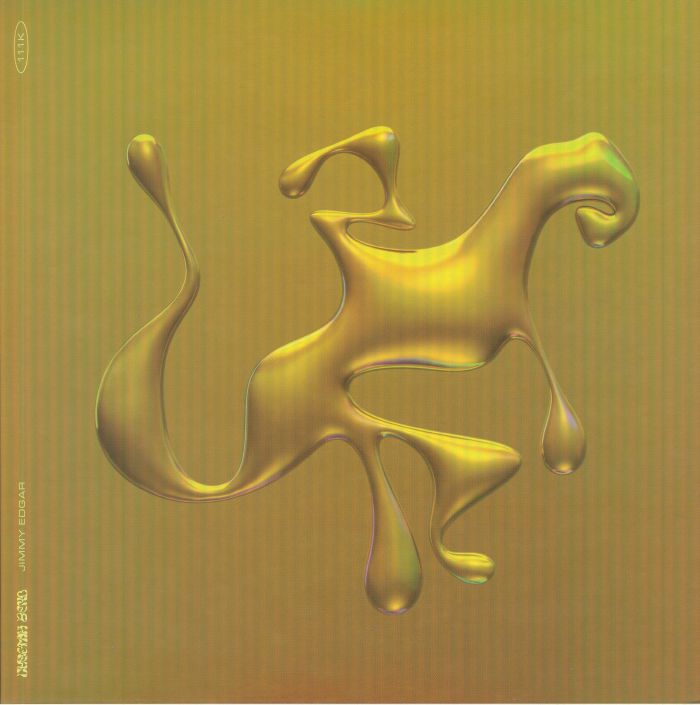
Jimmy Edgar — Cheetah Bend (Innovative Leisure)
It has almost been a decade since Jimmy Edgar offered a solo album, which came in the form of 2012’s Hotflush Recordings release Majenta. If nothing else, we can confidently report things have got significantly stickier between then and now, with Cheetah Bend, his fifth full length as lone wolf, the kind of record you quickly find yourself completely covered in.
A body of work that coherently takes the sleaze-soaked electro, tormented Wurlitzer glitch and overbite stomps that have long established him among our finest post-millennial synthesising talents, and apply that mindset to sounds at once darker yet poppier, chart-wise vocal bass wouldn’t be the most inaccurate description. So less stylistic metamorphosis, more logical evolution for a well known musical shapeshifter.
Whereas our last long form from Edgar felt focused on the floor, even if that floor was a mutant slick to touch with disco and sex, here the effects of (re)exposure to US tones in recent years, not least rap from the Dirty South, are most audible. Hence credits including B La B, a native of Georgia’s loudest city whose rhythmic approach to song and rhyme keeps heads nodding throughout low slung snapper ‘Turn’.
Following the album’s brief but atmospheric intro the filthy bass rattle, sparse detailing and battling lyrics of Danny Brown collaboration ‘Get Down’ sets things off in a way we quickly realise defines how the tracklist unfolds — heavyweight percussion, words packed in tight but lackadaisical flows, and low-ends that can shake the very foundations on which you’re standing, regardless of what you’re standing on. An ideal warm up for ‘Pause’, with Matt Ox’s exceptional mic work, euphoric synths and rowdy lo-fi beats.
Sludge and bounce in equal measure, what makes Cheetah Bend such a satisfying and complete work is the way new ingredients are invited to a sit down with established flavours from Edgar’s repertoire, serving up a dish that somehow feels like it has always been on the plate. ‘Be With You’ paints a face-slap-fresh picture of pop that’s both crystalline and forged in steel, Millie Go Lightly’s soft, satin-like words providing soothing contrast to precision-engineered drums that owe more to machine funk than lush electronica. Semma’s beautiful R&B vocals and the hypnotic, West Coast synth on ‘Cheetah’ are classic partners in crime, but the kicks that may or may not have been shipped from nearby construction sites make it anything but typical.
Similarly, and also completely differently, ’Have A Great Now’ keeps things on that loosely California tip while putting an emphasis on boogie. Meanwhile, late musical visionary SOPHIE, who tragically died earlier this month, joins for arguably the most appropriately-titled of the lot, ‘Metal’, wherein it seems road workers are getting murky to a John Carpenter movie score. Or something like that.
These juxtapositions represent the album’s core motif — experimental incarnations of body music, workouts that have one foot riding with the top down, another rooted in the late night, subterranean cabaret stylings Edgar’s productions have delivered prior to this point. Luring us deeper into an intoxicating odyssey with an effortless ease befitting the heat and humidity emanating from these tunes, it’s at once unique and ubiquitous; strange but familiar, if you know the places Edgar has been. From Detroit through kitsch recesses of Berlin’s flamboyantly unkempt party scene and onto the smooth polish of Los Angeles, this is a masterclass of mechanical futurism, retro e-funk, modern rap, surreal soul and art pop that stands out from the first moments to the closing bars of deconstructed club closer ‘Curves’.
MH
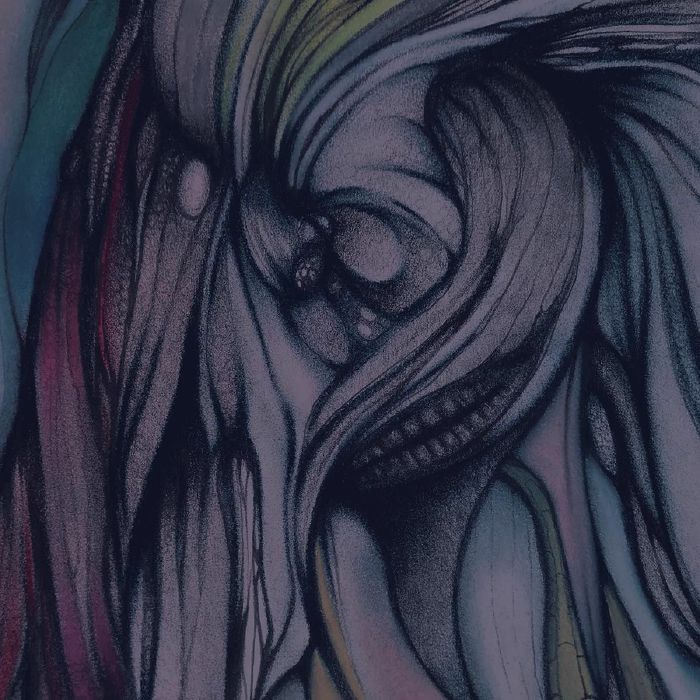
Calibre – Feeling Normal (Signature)
This, Calibre’s 17th long player was recorded in tandem, or thereabouts, with 2019’s ambient presentation ‘Planet Hearth’ and according to the man himself is his “first bona fide 140 BPM record.” But mores the point is clear demonstration of the limitless artistry on offer from the Belfast born / Berlin based producer.
Feeling Normal includes thirteen hefty cuts of through-the-night richness, many of which, including uber-fave ‘Badman’ with guest rapper DRS, have been doing the rounds these last two or three years. It’s a stunning salvo of dance floor and groove orientated techno and sees Calibre chuck us a kaleidoscopic curveball.
Recent chat around Calibre’s slowdown to 140 BPM is extensive and across the techno scene is for sure a brilliant deviation from the usual drum and bass form. But as a piece of music or indeed art, be rest assured this does nothing to stop it from transcending the playful aloofness of a darkened unlicensed event whilst maintaining the jitters of dubstep and the edginess of a militant garage takeover.
Asian tinged opener ‘Barren’, and further up the groove ‘Miami’ secure that chopping breakbeats remain and whilst swathed in lovely layers of trippy house and buffering ambient chimes, via tracks like the titular ‘Feeling Normal’ and ‘Man got the Sandwich’, ensures a deep-down, luxurious and heady album.
The guests on the record turn things inside out and to storming effect. The aforementioned DRS appears again on ‘Say Enough’ adding steak knife precision to its cutting mood and direct approach, before the wonderful Cimone adds a soulful touch that warms through the softer sounding ‘Time to Breathe’.
As a statemented electronic piece, Feeling Normal is a grand exploration into the genre’s ideas and methods – the full gamut from hypnotic pounders to resonating dub. Moreover, it is a meditation into sound; an exploration into the various soundscapes that for decades have forged the deep and gasping breaths of those who have furrowed long into the lifeblood of electronic music.
APC
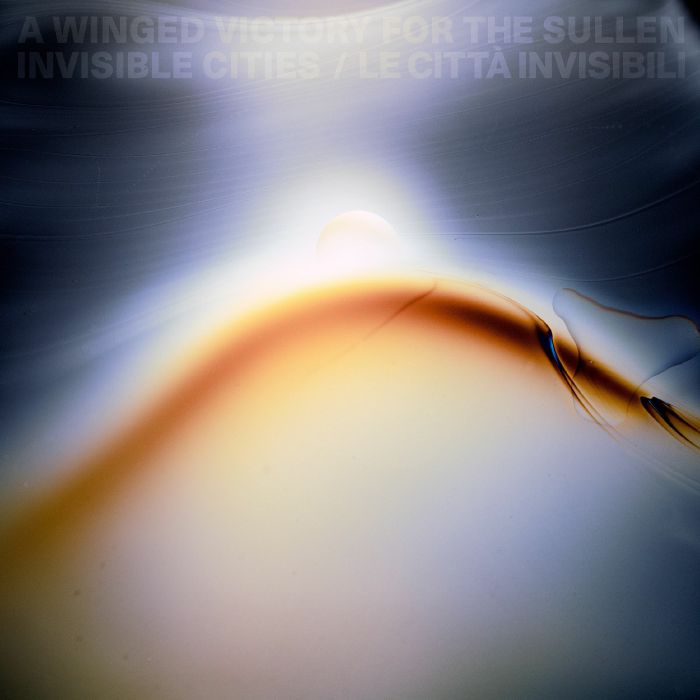
A Winged Victory For The Sullen – Invisible Cities (Artificial Pinearch Manufacturing)
When someone invites you to create a soundtrack for a production that takes up the space of two football pitches and includes a full functioning canal running through it, not to mention encompassing dance, theatre, multimedia lightshows and architectural design, then you presumably have to think equally big.
Luckily, Dustin O’Halloran and Adam Wiltzie aka A Winged Victory For The Sullen are no strangers to the idea of putting music to the biggest visual ideas about, with separate and joint careers soundtracking some of the biggest films around. The difference with Invisible Cities, which is based on a 70s psychedelic novel about travel – both real and imagined – is that they were given free reign and let off the tight creative leash that Hollywood studios quite often keep them on. The result is epic music that combines O’Halloran’s more traditional composing skills with Wiltzie’s avant garde guitar playing (best known via his long running drone outfit Stars of the Lid). It’s a beautiful zone where the organic and synthetic blend into one almost cloud-like texture of sound, often soaked in gorgeous echo and reverb, with motifs, like the simple but highly effective string pro9gressions of ‘The Merchants Of Seven Nations’, emerging here and there and then retreating into heavenly fug and smoke.
They’ve cut themselves a pretty unique niche in the world of instrumental music, one that imagines a world in which Spacemen 3 at their most wigged out might collaborate with Max Richter. But such reference points are ultimately pointless – once you sink into this sonic landscape, you’re quickly whisked off to aural landscapes that you’ve never visited before – and a blissful holiday for the mind it is too.
BW

Pye Corner Audio – Black Mill Tapes (10th Anniversary Box) (Lapsus)
Nostalgia is a curious phenomenon. Perhaps the allure of certain eras will eventually become generationally lost, but some cultural forms are so evocative in the way they communicate a time and place, the nostalgia itself transcends the subject matter. Pye Corner Audio remains such an enticing prospect because of how effectively Martin Jenkins summons up the feeling of an imagined English history – a sequence of brown-tinted 70s scenes filled with dour, pallid characters with bad teeth, of twee television and primitive computing, bad fashion and the pervading threat of nuclear fallout. That such periodic signifiers should hold any appeal is part of the mystery unique to those who remember the time with rose-tinted lenses, and Jenkins certainly makes it all sound fuzzy and cosy, not least on pieces like ‘Theme Number Four’.
The Pye Corner Audio project began as a series of Black Mill Tapes in 2010, soon expanding beyond a niche, playful concept with stylised presentation to become a fully-fledged musical endeavour from an engineer who had previously been working with The The’s Matt Johnson and Trevor Jackson. But those early releases perfectly capture a sound world steeped in tape hiss and pitch wobbles, where atonal experiments sit alongside Giallo-ready disco throb. Now Lapsus have gathered these four volumes together as a plush box set, with an additional volume added for good measure to help you stay trapped in a 70s reverie for that little bit longer.
Often, with Pye Corner Audio, it’s the ‘Theme’ pieces that really set the tone – brief melodic interludes that let the frail chords really buckle under the weight of ferrous degradation. But there are also discernible standouts as well. ‘We Have Visitors’ is the hit – a track with enough groove to actually get down to – while ‘Electronic Rhythm Number Four’ purrs and prowls with some acute compositional peaks. But these more sharply defined pieces sound better as pockmarks amidst the creeping fog of PCA’s more ambient passages – a gloomy and yet intensely inviting place to pretend you remember.
OW
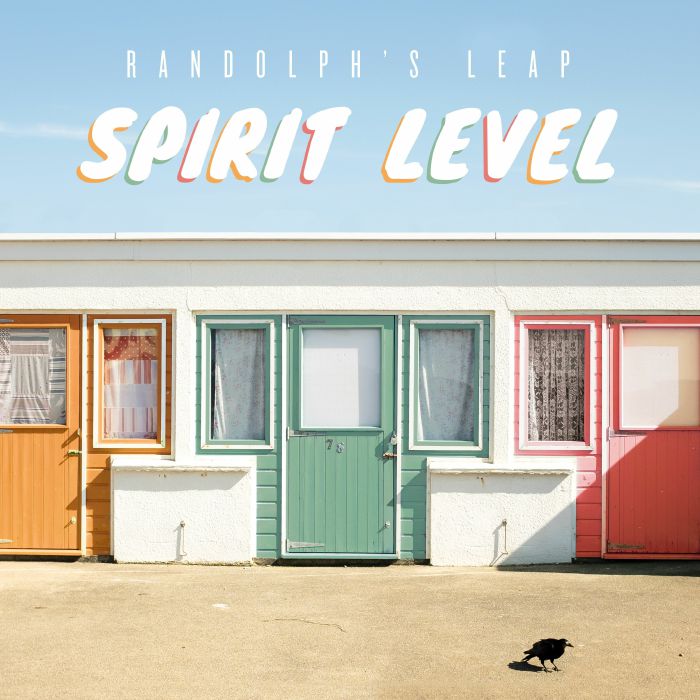
Randolph’s-Leap – Spirit Level (Fika)
Not long before the physical edition of NME ceased publication, the magazine asked Belle & Sebastian’s Stuart Murdoch how it felt to be the last in the line of old-school indie musicians. The singer seemed bemused by the concept but, perhaps aware of the cultural shift that would soon engulf the NME, blinked back: “I’ll take it”. In retrospect, the question was a good one. A few literate, joyous collectives – The Hidden Cameras, I’m From Barcelona, Meilyr Jones – have strived for similarly iconic indie status, but 25 years on from Tigermilk, none – as yet – have succeeded.
When Randolph Leap’s Adam Ross moved to rural Aberdeenshire after 10 years of trying to make it in Glasgow, any such lofty ambitions were far behind him. His band had been labelled “the new Belle & Sebastian” every time they’d released each of their six previous albums (counting CDrs and cassette releases), and the tag had failed to stick. And judging by the tone of this album’s opener, ‘Moment Passed’ (key lyric: “I am a man devoid of original thought”), Ross clearly thought he’d had his chance and blown it.
The result is a record which says “fuck it” and throws everything at shamelessly being the most high definition version of themselves as they could possibly be. If you hate breezy, sunny, uplifting indie pop where nothing seems to be at stake, then you’ll really hate this album, as it’s that concept pushed gloriously, defiantly to its ultimate conclusion. It’s bright, uplifting, more like a touring theatre group than anything to do with rock’n’roll, nine musicians (violin, trombone and trumpet included of course), running full pelt at making The Divine Comedy sound like Joy Division.
It’s also brilliantly in your face, deliberately taunting any haters with lyrics that say: “You think we’re twee? You ain’t heard nothing yet!” Ross has weathered all the criticisms before – “There are plenty of reasons why I’m not your kind of guy” he sings in ‘Let This Lie’– and here he revels in being ”that guy”. He namedrops pensions, low interest loans, yoga mats, and bookshelves bearing “moderate weight”; he counters mild depression with “I mustn’t grumble”; and as the ebullient brass-driven pop builds to yet another crescendo, proclaims: “We’re the anti-population/Let’s declare a brand new nation”.
When Ross relaxes the over-the-top, last-roll-of-the-dice mood – as in the thoughtful album closer ‘Too Good’, where he attempts to come to terms with the death of a childhood friend – he can be a subtle writer. But generally this is an album – perhaps motivated by failure and death – that grasps life and screams with all the joy it can muster. Your self-conscious experimental music loving friend who flies into a rage at the sight of someone wearing a t-shirt with a bicycle on it (true story), will despise every second of it. Fuck him.
IW
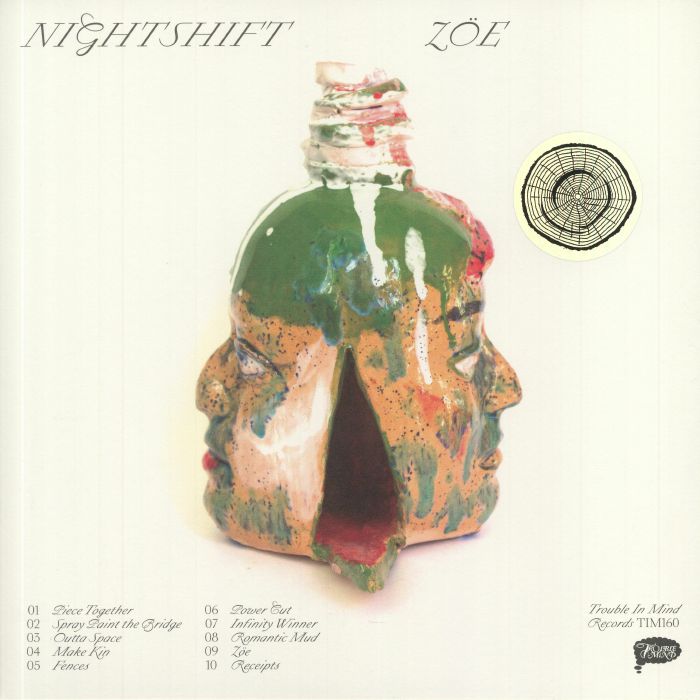
Nightshift – Zoe (Trouble In Mind)
“”No Wave/No New York/early Sonic Youth/This Heat-esque.” Nightshift’s founding members, ex-I’m Being Good guitarist David Campbell and Robert Sotelo bassist Andrew Doig, clearly knew where they wanted to take their sound, but perhaps had difficulty settling on a specific definition. After spending some time with Zoë, we can completely empathise with that predicament.
Like so much that has come out of the Glasgow indie scene, the end result of those two aforementioned players joining forces with visual artist Eothen Stearn (2 Ply), Chris White (Spinning Coin) and vocalist Georgia Harris is a very arty affair, yet still being rooted in a raw, no frills ethic. We can apply whatever labels spring to mind, but ultimately ‘Make Kin’, for example, is best remembered by the effortlessly cool, spoken word-style lyrical delivery of its verses and guttural, rough and ready R&B guitar rhythm. But as with everything here, the track is packed with hypnotic, engrossing, quiet-but-commanding elements that seem to tunnel to the centre of the brain and render your body helpless to the rhythms, with the title track’s layers and loops of words, toms and chords indicative of Nightshift’s subtle power.
MH
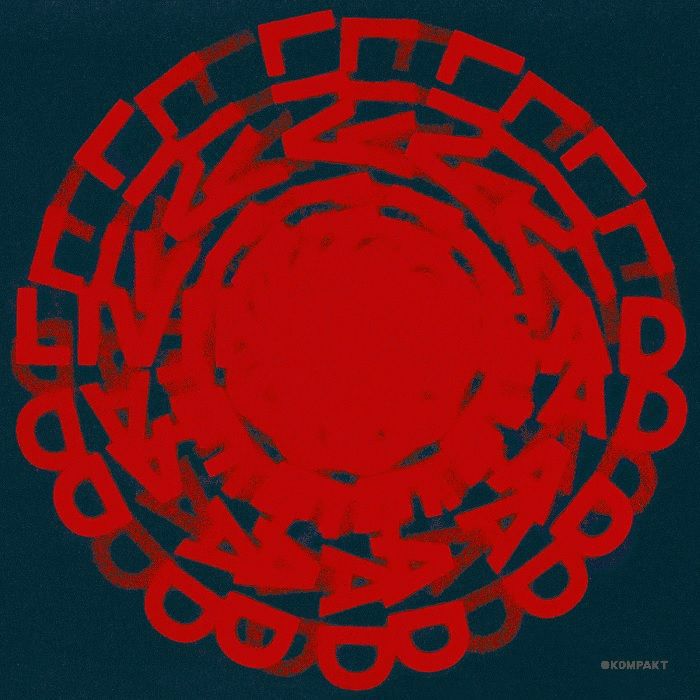
John Tejada – Year of the Living Dead (Kompact)
Someone like John Tejada almost feels beyond the point of critical evaluation at this point. He’s so obviously refined in his craft that albums and EPs just seem to glide out of him without so much as a glimmer of artistic strain. That’s a gross reduction of the work that goes into a release of course, but more than that, he’s actually still releasing albums worthy of an attentive listen that might just subvert your expectations. On his latest outing for Kompakt, he started his creative process with tools he wasn’t familiar with, but funnily enough it actually feels like this has perhaps taken the LA-based producer back to some of the interesting pastures he has roamed in his many-sided career.
Take ‘Abbot of Burton’ – one of the few more uptempo moments on the album – and you can sense the same quirky bite which inhabited many a classic Palette 12” back in the day. Elsewhere there’s plenty of space for micro-dub reflections – the album opener ‘The Haunting of Earth’ sounds like something that would sit right on a ~scape record from the early 00s, while its successor straps a similar blue-hued shimmer to a forthright beat making it a neat fit for a Mosaic single. But these callbacks are nothing to lament – there’s ineffable warmth in Tejada’s productions which makes everything so very cosy to slip into, and Year of the Living Dead is as animated as it is immaculately produced.
OW
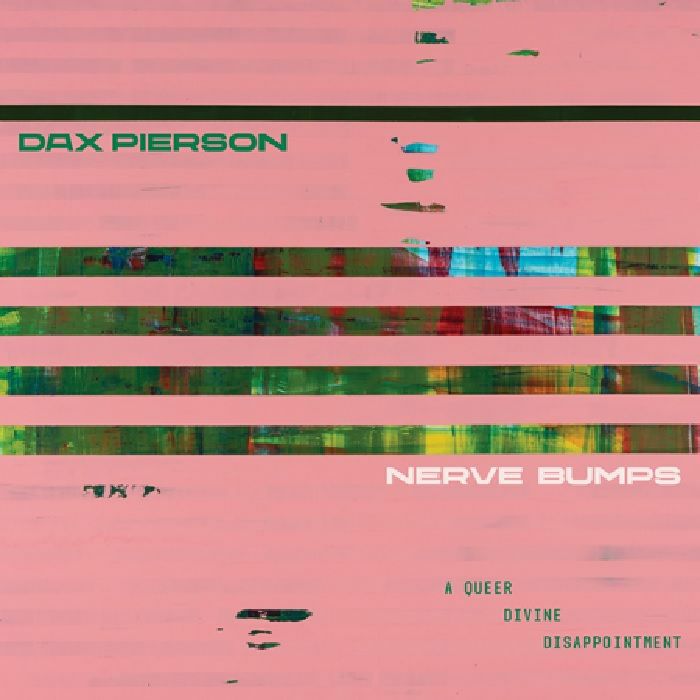
Dax Pierson- Nerve-Bumps A Queer-Divine
Dax Pierson is a West Coast synth-jammer with a storied past that reaches back to collaborations with bands like 13 & God and Subtle in the glory days of Anticon. While scattered works have appeared here and there, Nerve Bumps (A Queer Divine Dissatisfaction) comes on like his debut album proper.
His earlier associations may not exactly point to the sound on his album, but there’s a fierceness of identity and a desire to be different that shines through and calls to mind his former bandmates.
Pierson’s experiences as a quadriplegic are embedded thematically in the album, in titles, artwork and so forth. Musically, it charges forth with a dazzling technicolour urgency, reaching bombastic heights as huge, gleaming daubs of oscillation cavort with each other in off-beat time signatures. There’s enough acidic licks and crunching beats to make this feel like electronica, but there’s something more elegant and composed at work here. Without slipping into Hopkinsian levels of cinema-tech, Pierson’s vision spans a vast landscape and tugs at emotional cores. It’s quite simply a revelation – a powerful statement of identity imbued with restless movement and an engrossing sense of narrative as expressed through some of the most beautifully sculpted synths you’ll hear all year.
OW
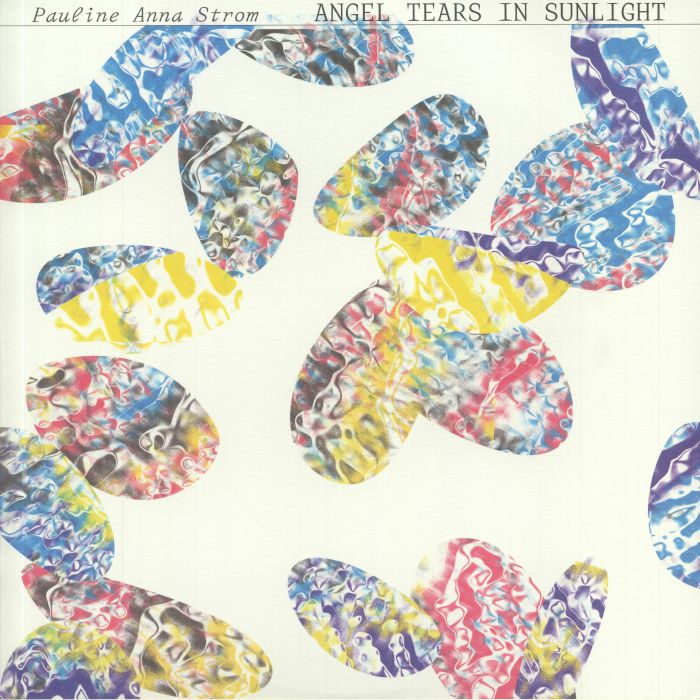
Pauline Anna Strom – Angel Tears In Sunlight (RVNG Interntional)
There’s a great bittersweet energy hovering over the release of Pauline Anna Strom’s first new music in 30 years. Angel Tears In Sunlight was announced just weeks before, and comes out just months after, she passed away at the age of 74 in her home in San Francisco. She had lived something of an extraordinary life, born blind and moved to record her own music using synthesisers and a four-track, releasing her own sparkling ambient and new age music in the early 1980s. Having retreated from artistry to focus on another calling within spiritual healing, the delicate revival of her music via Rvng Intl. in 2017 brought the idea of creation back to her, and she amassed a small collection of machines to record something new.
The resultant material is achingly beautiful and incredibly nuanced, moving through passages of delicately plucked polyrhythms and stark stabs guided with a pronounced harmonic purpose. What’s interesting is how upfront Strom allows her synths to be – she spoke of the equipment having, “to become part of you and your creativity.” And at every turn you can hear the personality of her chosen tools – in every arch sequence, every plastic voice. Strom didn’t try to mask the electronics in pastoral guile, and yet the music soars and swoons with its own natural impulse, inquisitive and inherently committed to the magic of musical expression. There’s a succinct beauty in this immaculate work as her unexpected swansong – a sound that nearly never came to be, but ultimately captured something beautiful and timeless, just in time.
OW
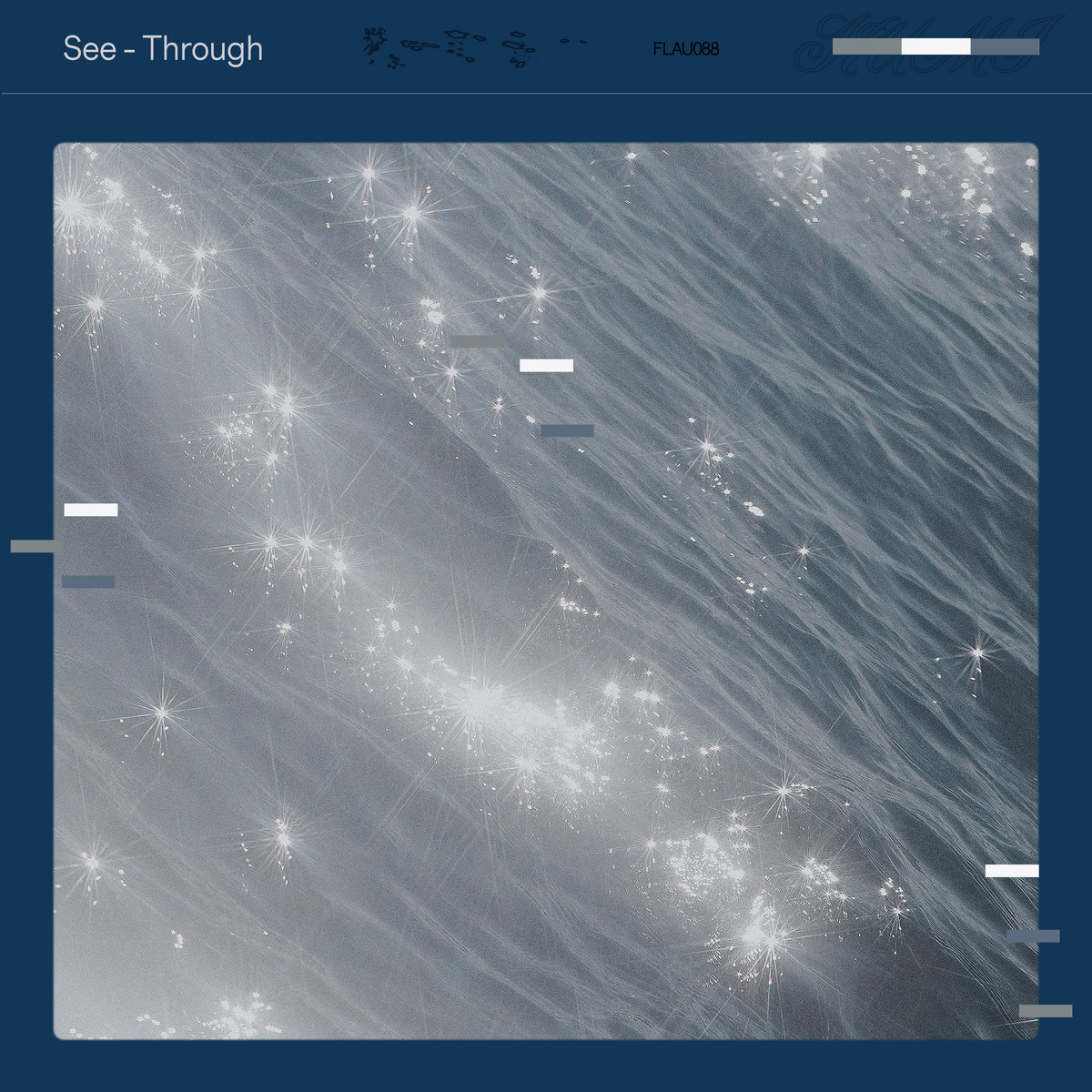
Kumi Takahara — See-Through (FLAU)
Kumi Takahara’s debut album should rightly introduce her to many modern classical and ambient fans previously unfamiliar with the Tokyo-based musician, whose skillset spans cello, violin, viola, contrabass and singing. Not that her collaborative work with names including Anoice, Kashiwa Daisuke and aus won’t have pricked a few ears up along the way.
From the word go See-Through feels like stepping into someone else’s world, namely Takahara’s. The album’s original demos were recorded in a makeshift bathroom studio, towels for soundproofing and washing machine balancing laptop, at her apartment, and in many ways you hear the arrangements laying artist bare; quiet and calm tones helping to create a personal and intimate experience, with arrangements such as the innocent sonata ‘Nostalgia’ and ivory-string duet ‘Roll’ among the best examples of just how close things get. You can dive into the timbre, not just the notes.
This also means the soundscapes have a hidden depth, as tracks like ‘Kai-kou’ and ‘Tide’ prove. From humble beginnings they awaken the senses, opening our eyes to grand sonic vistas waiting to be explored, eliciting emotional responses through the strength of musicality, rather than the more common reliance on overwhelming with scale.
MH
This week’s reviewers: Martin Hewitt, Oli Warwick, Ian Watson, AP Childs, Ben Willmott.